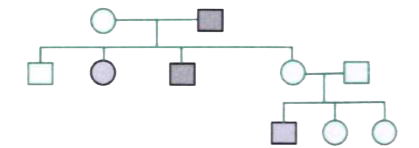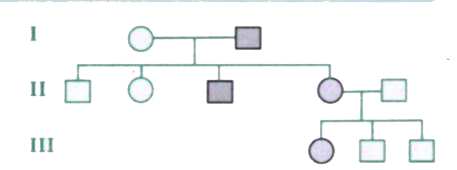Forecomming generations are less adaptive than their parental generation due to : -
Natural selection
Mutation
Genetic drift
Adaptation
The correct Answer is:2
Step by step video & image solution for Forecomming generations are less adaptive than their parental generation due to : - by Biology experts to help you in doubts & scoring excellent marks in Class 12 exams.
Updated on:21/07/2023Topper's Solved these Questions
- ORIGIN & EVOLUTION OF LIFEBook:ALLENChapter:ORIGIN & EVOLUTION OF LIFEExercise:EXERCISE-IV (ASSERTION & REASON)
Explore 25 Videos
- ORIGIN & EVOLUTION OF LIFEBook:ALLENChapter:ORIGIN & EVOLUTION OF LIFEExercise:EXERCISE-III A(NCERT BASED QUESTIONS)
Explore 70 Videos
- ORIGIN & EVOLUTIONBook:ALLENChapter:ORIGIN & EVOLUTIONExercise:S
Explore 65 Videos
- PHOTOSYNTHESIS IN HIGHER PLANTSBook:ALLENChapter:PHOTOSYNTHESIS IN HIGHER PLANTSExercise:Match the column
Explore 3 Videos
Similar Questions
Forthcoming generation will be less adaptive than the present generation due to
View SolutionForthcoming generation will be less adaptive than the present generation due to
View SolutionAction potentials are generated due to
View SolutionWith the help of one example each provide genetic explanation for the following observations: brgt (i)F1-generation resembles both the parents.
F1-generation does not resemble either of the parents
View SolutionGeneration of non-parental gene combinations in F2 generation is due to
View SolutionIf the two genes are having % of recombination less than 50%, then the progeny of F2 generation will show
View SolutionIn a typical Mendelian cross, which is a dihybrid cross, one parent is homozygous for both dominant traits and another parent is homozygous for both recessive traits. In the F2 -generation, both parental combination and recombinantions appear. The phenotypic ratio of parental combinations to recombinations is
View SolutionIntensely lactating mothers do not generally conceive due to the
View SolutionStudy the given pedigree chart and answer the questions that follow:

Give the genotype of the parents in generation I and their third and fourth child in generation II.
View SolutionStudy the given pedigree chart and answer the following questions:

Give the genotypes of the parents shown in generation I and their third child shown in generation II and first grand child shown in generation III.
View Solution